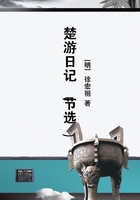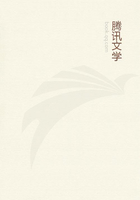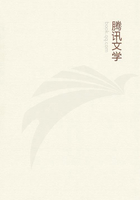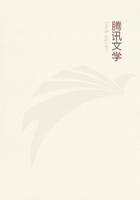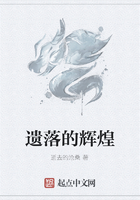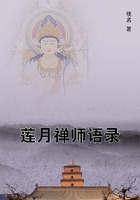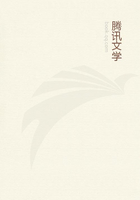The ideal power with which we feel ourselves in connection, the "God" of ordinary men, is, both by ordinary men and by philosophers, endowed with certain of those metaphysical attributes which in the lecture on philosophy I treated with such disrespect. He is assumed as a matter of course to be "one and only" and to be "infinite"; and the notion of many finite gods is one which hardly any one thinks it worth while to consider, and still less to uphold. Nevertheless, in the interests of intellectual clearness, I feel bound to say that religious experience, as we have studied it, cannot be cited as unequivocally supporting the infinitist belief. The only thing that it unequivocally testifies to is that we can experience union with SOMETHING larger than ourselves and in that union find our greatest peace. Philosophy, with its passion for unity, and mysticism with its monoideistic bent, both "pass to the limit" and identify the something with a unique God who is the all-inclusive soul of the world. Popular opinion, respectful to their authority, follows the example which they set.
Meanwhile the practical needs and experiences of religion seem to me sufficiently met by the belief that beyond each man and in a fashion continuous with him there exists a larger power which is friendly to him and to his ideals. All that the facts require is that the power should be both other and larger than our conscious selves. Anything larger will do, if only it be large enough to trust for the next step. It need not be infinite, it need not be solitary. It might conceivably even be only a larger and more godlike self, of which the present self would then be but the mutilated expression, and the universe might conceivably be a collection of such selves, of different degrees of inclusiveness, with no absolute unity realized in it at all.[364] Thus would a sort of polytheism return upon us--a polytheism which I do not on this occasion defend, for my only aim at present is to keep the testimony of religious experience clearly within its proper bounds. [Compare p. 130 above.]
[364] Such a notion is suggested in my Ingersoll Lecture On Human Immortality, Boston and London, 1899.
Upholders of the monistic view will say to such a polytheism (which, by the way, has always been the real religion of common people, and is so still to-day) that unless there be one all-inclusive God, our guarantee of security is left imperfect.
In the Absolute, and in the Absolute only, ALL is saved. If there be different gods, each caring for his part, some portion of some of us might not be covered with divine protection, and our religious consolation would thus fail to be complete. It goes back to what was said on pages 129-131, about the possibility of there being portions of the universe that may irretrievably be lost. Common sense is less sweeping in its demands than philosophy or mysticism have been wont to be, and can suffer the notion of this world being partly saved and partly lost. The ordinary moralistic state of mind makes the salvation of the world conditional upon the success with which each unit does its part. Partial and conditional salvation is in fact a most familiar notion when taken in the abstract, the only difficulty being to determine the details. Some men are even disinterested enough to be willing to be in the unsaved remnant as far as their persons go, if only they can be persuaded that their cause will prevail--all of us are willing, whenever our activity-excitement rises sufficiently high. I think, in fact, that a final philosophy of religion will have to consider the pluralistic hypothesis more seriously than it has hitherto been willing to consider it. For practical life at any rate, the CHANCE of salvation is enough. No fact in human nature is more characteristic than its willingness to live on a chance. The existence of the chance makes the difference, as Edmund Gurney says, between a life of which the keynote is resignation and a life of which the keynote is hope.[365] But all these statements are unsatisfactory from their brevity, and I can only say that I hope to return to the same questions in another book.
[365] Tertium Quid, 1887, p. 99. See also pp. 148, 149.
WILLIAM JAMES (1842-1910)
A NOTE ON THE AUTHOR OF "THE VARIETIES OF RELIGIOUS EXPERIENCE" The road by which William James arrived at his position of leadership among American philosophers was, during his childhood, youth and early maturity, quite as circuitous and unpredictable as were his father's ideas on the training of his children. That Swedenborgian theologian foresaw neither the career of novelist for his son Henry, nor that of pragmatist philosopher for the older William. The father's migrations between New York, Europe and Newport meant that William's education had variety if it did not have fixed direction. From 13 to 18 he studied in Europe and returned to Newport, Rhode Island, to study painting under the guidance of John La Farge. After a year, he gave up art for science and entered Harvard University, where his most influential teachers were Louis Agassiz and Charles W. Eliot.
In 1863, William James began the study of medicine, and in 1865 he joined an expedition to the Amazon. Before long, he wrote:
"If there is anything I hate, it is collecting." His studies constantly interrupted by ill health, James returned to Germany and began hearing lectures and reading voluminously in philosophy. He won his medical degree at Harvard in 1870. For four years he was an invalid in Cambridge, but finally, in 1873, he passed his gravest physical and spiritual crises and began the career by which he was to influence so profoundly generations of American students. From 1880 to 1907 he was successively assistant professor of philosophy, professor of psychology and professor of philosophy at Harvard. In 1890, the publication of his Principles of Psycholog brought him the acknowledged leadership in the field of functional psychology. The selection of William James to deliver the Gifford lectures in Edinburgh was at once a tribute to him and a reward for the university that sponsored the undertaking. These lectures, collected in this volume, have since become famous as the standard scientific work on the psychology of the religious impulse. Death ended his career on August 27th, 1910.

